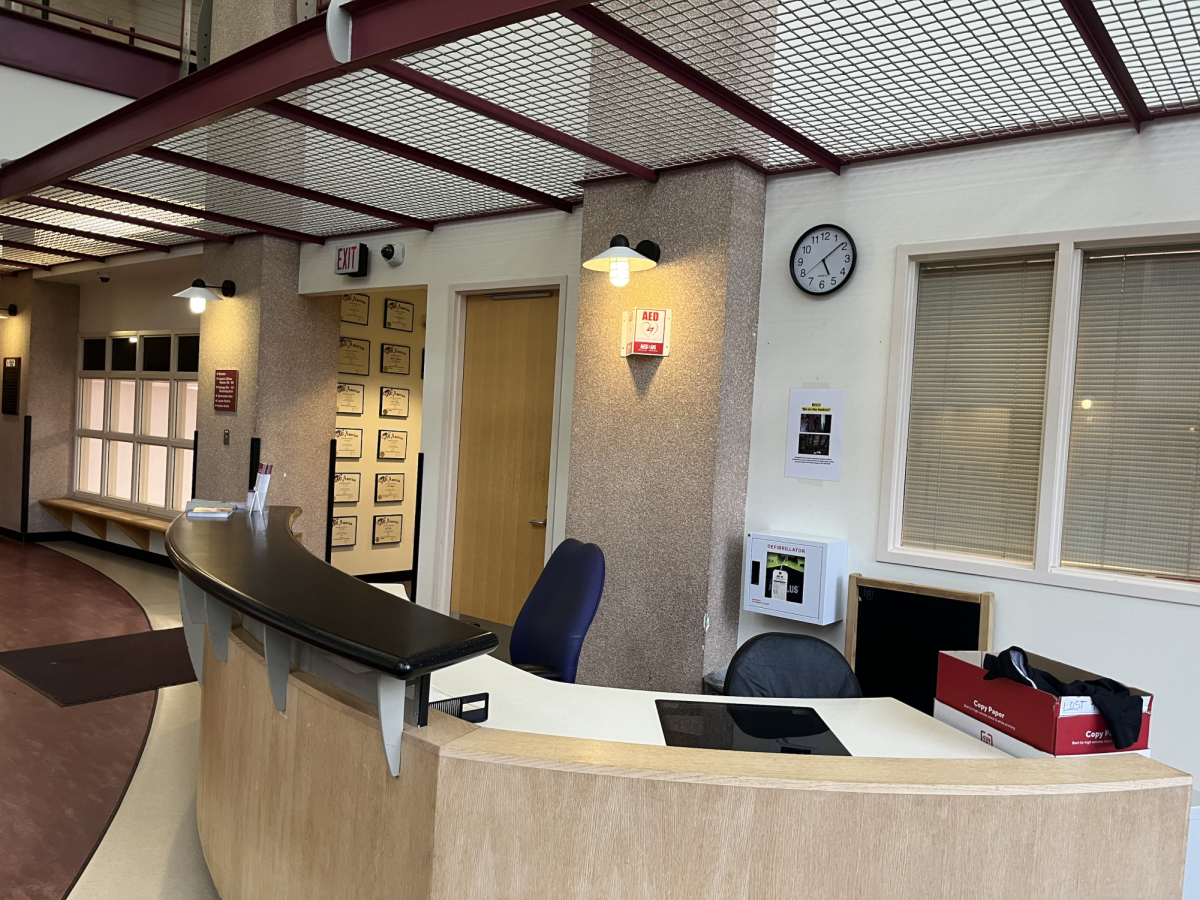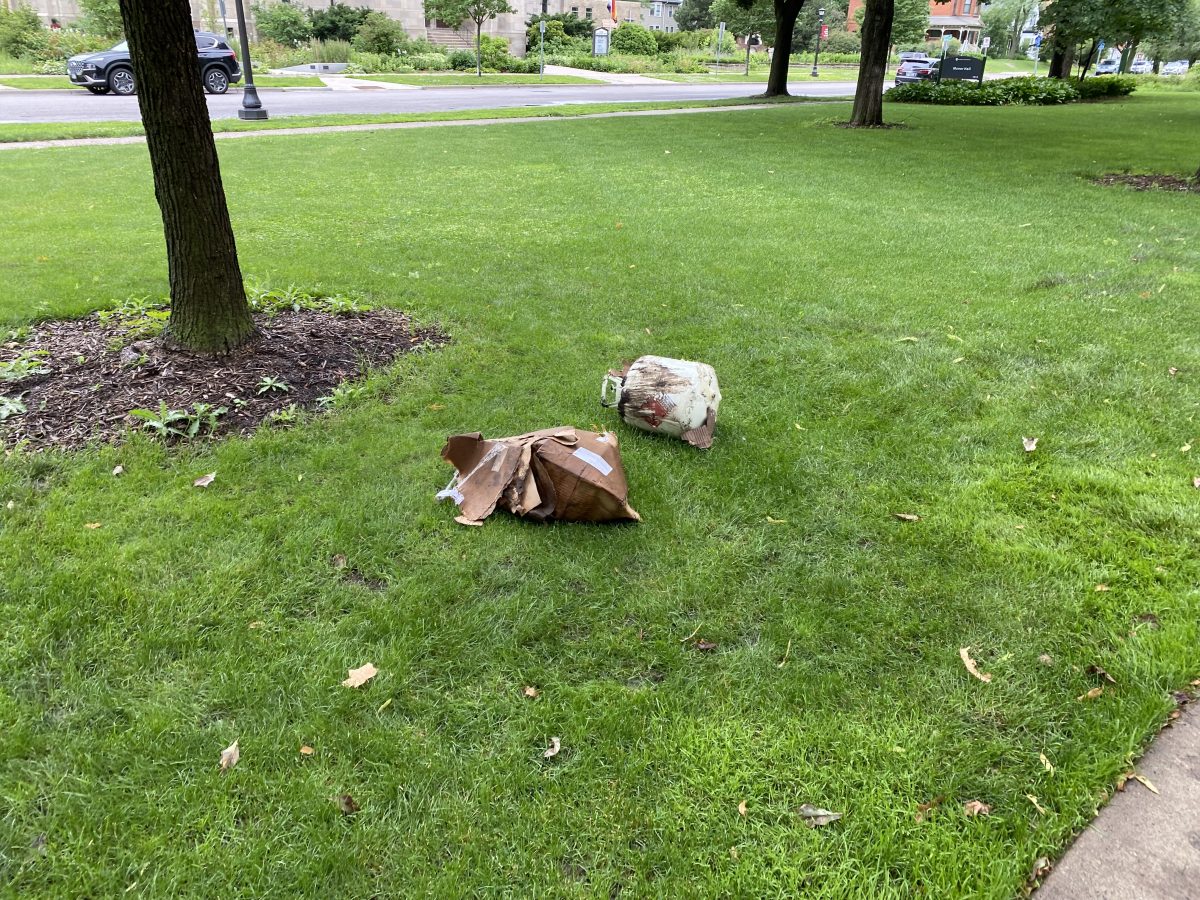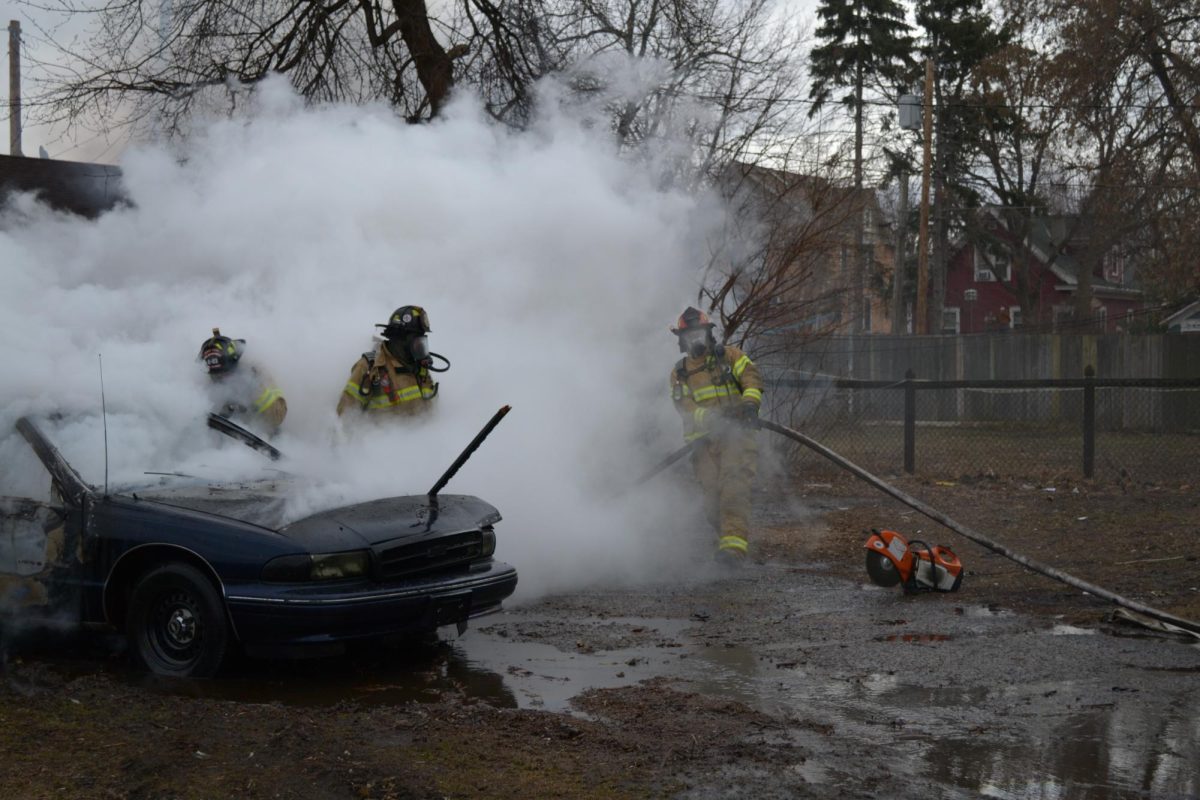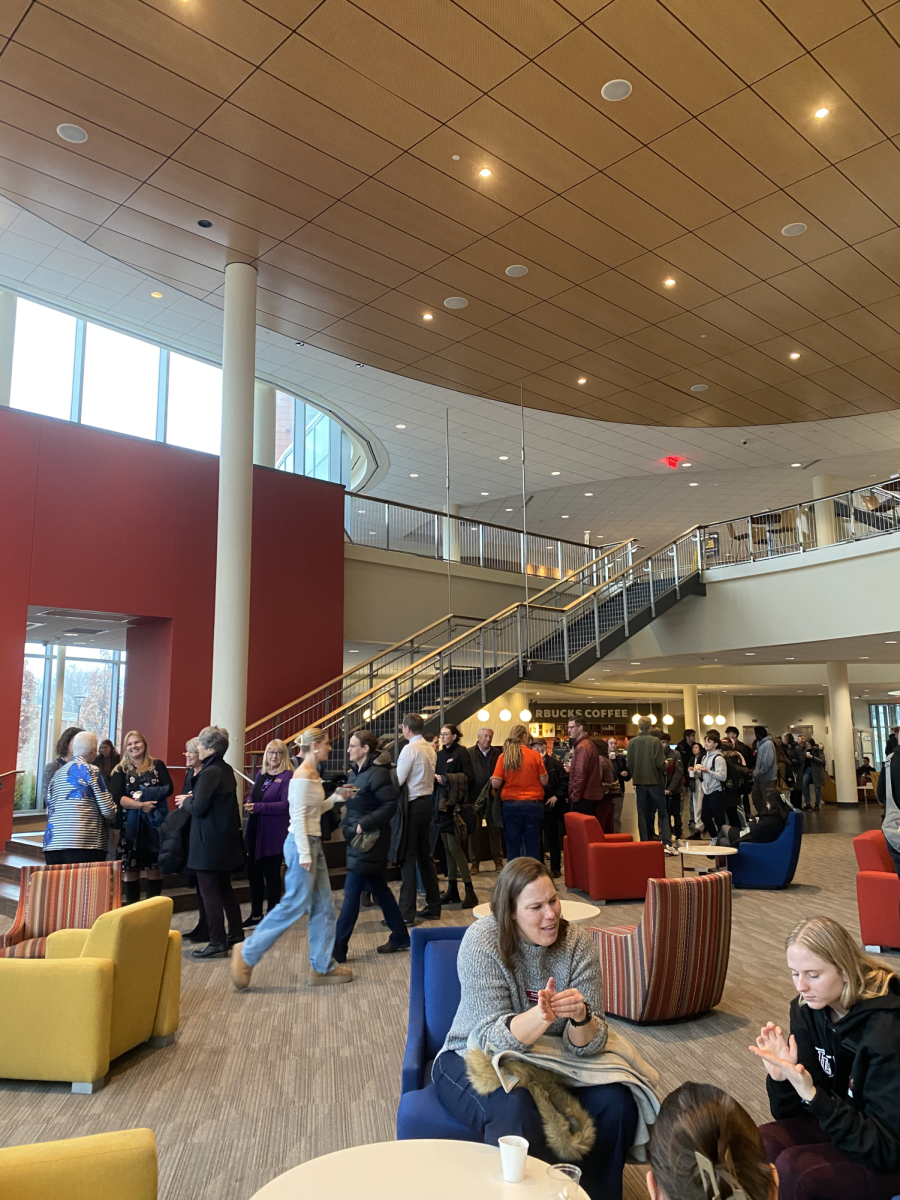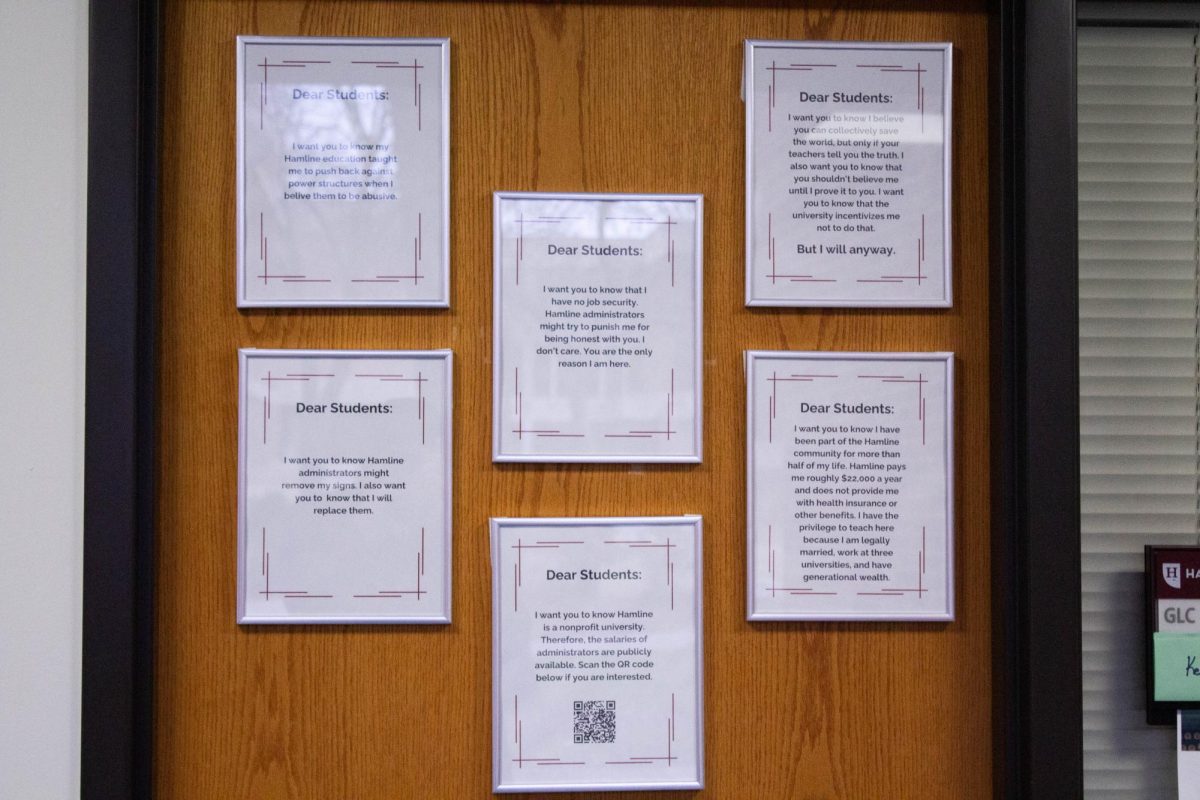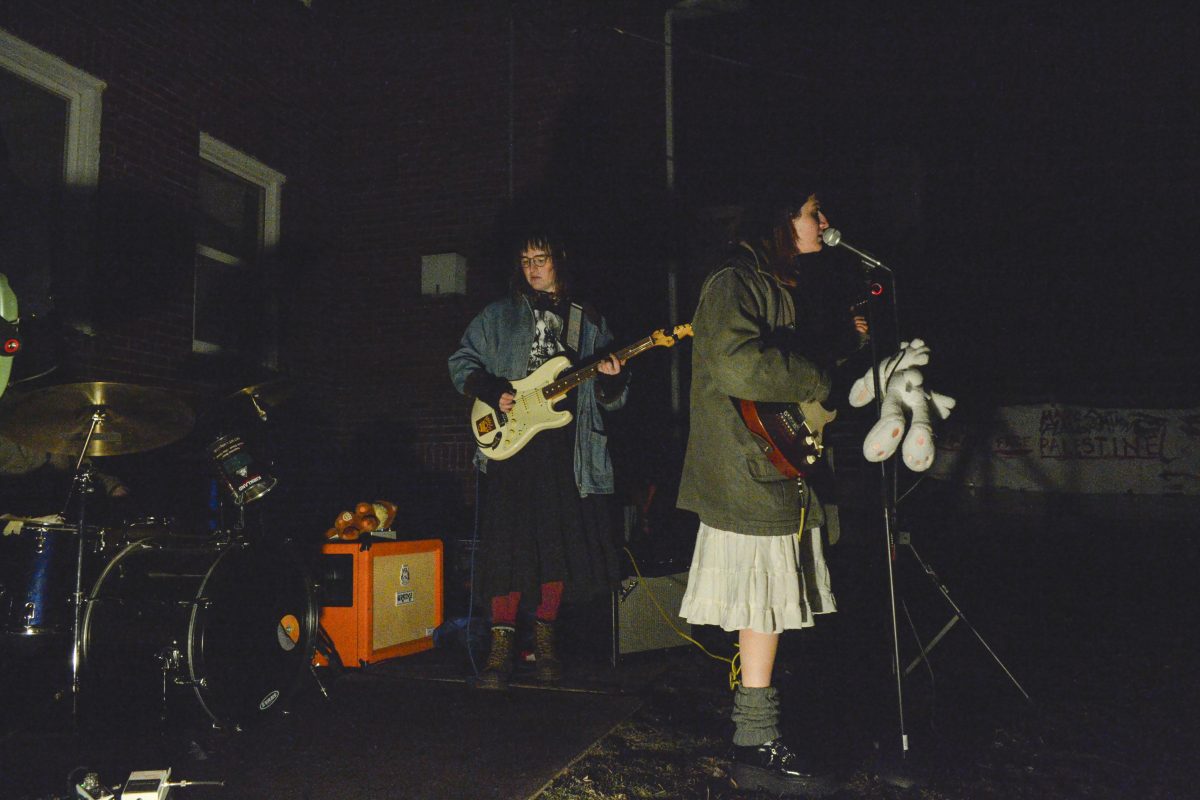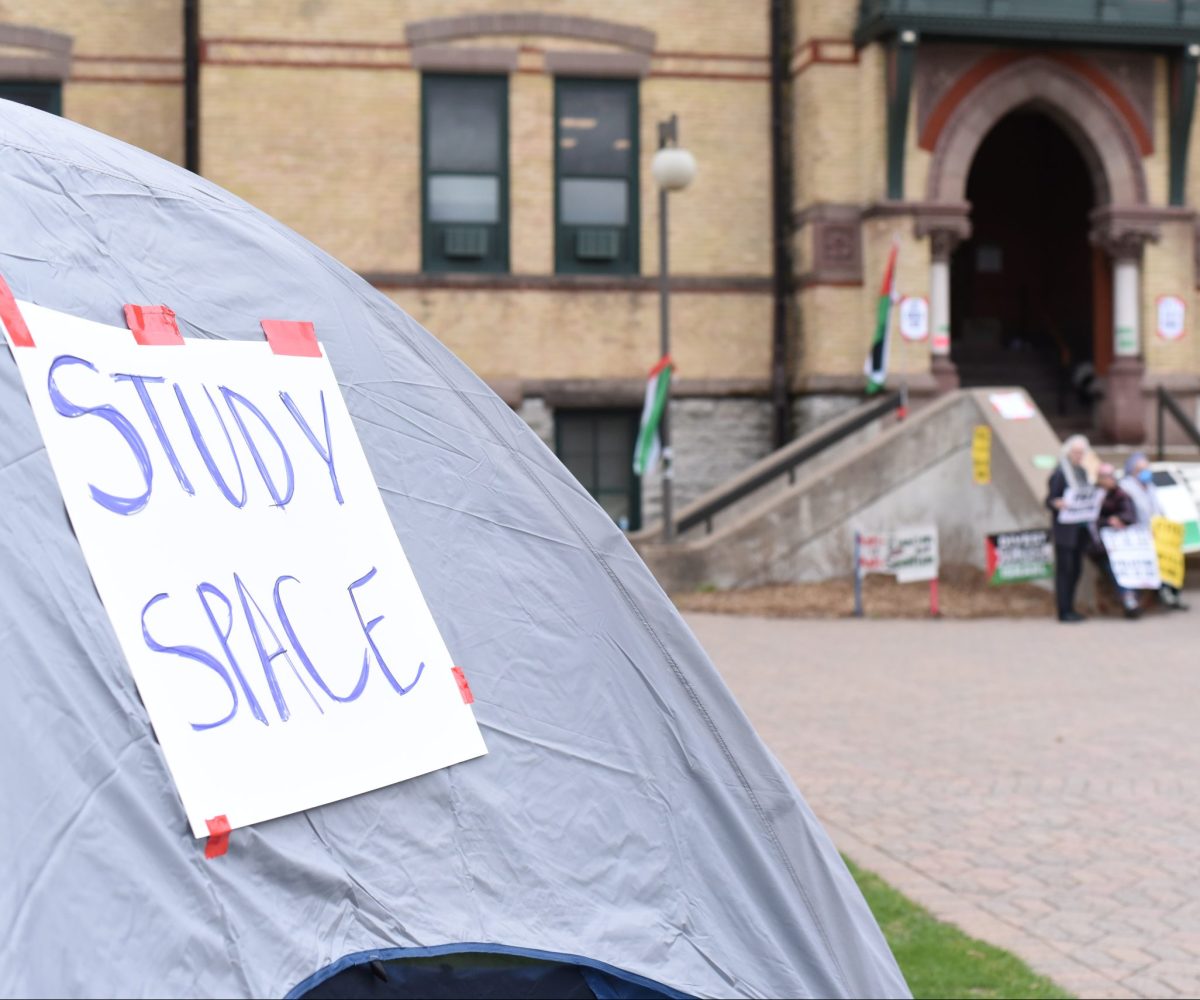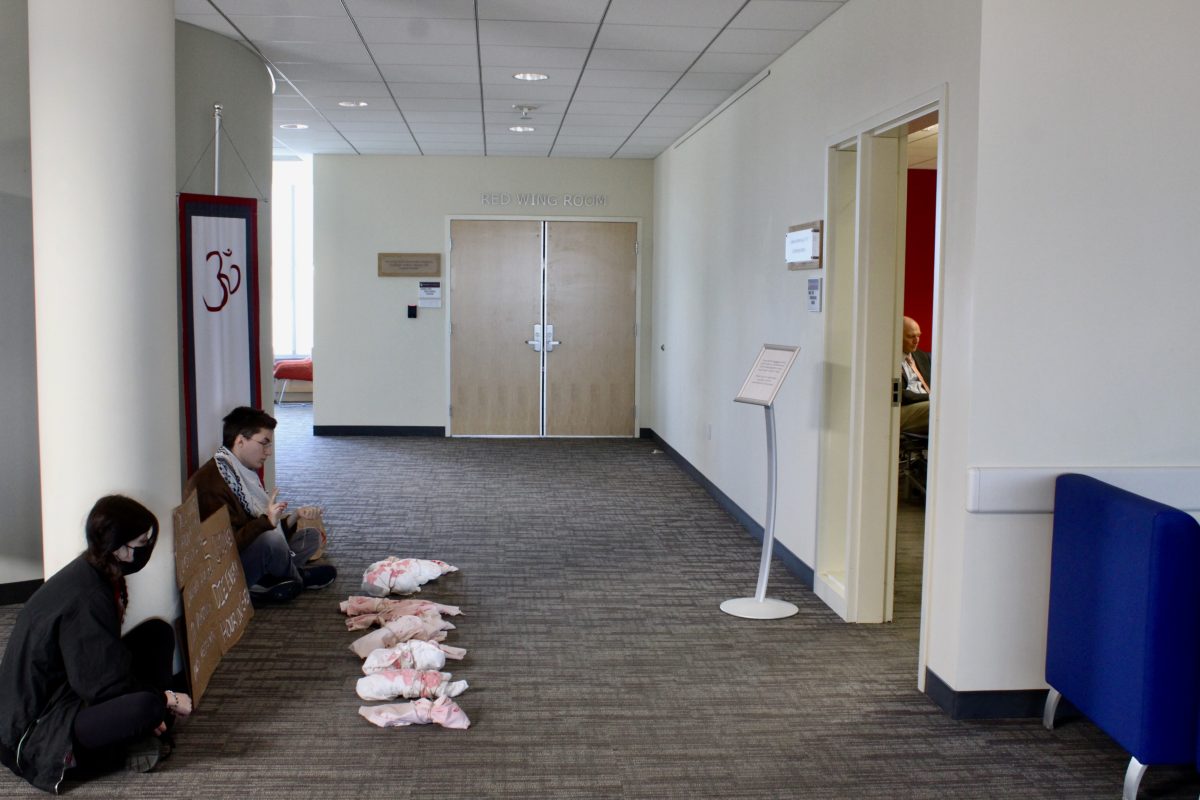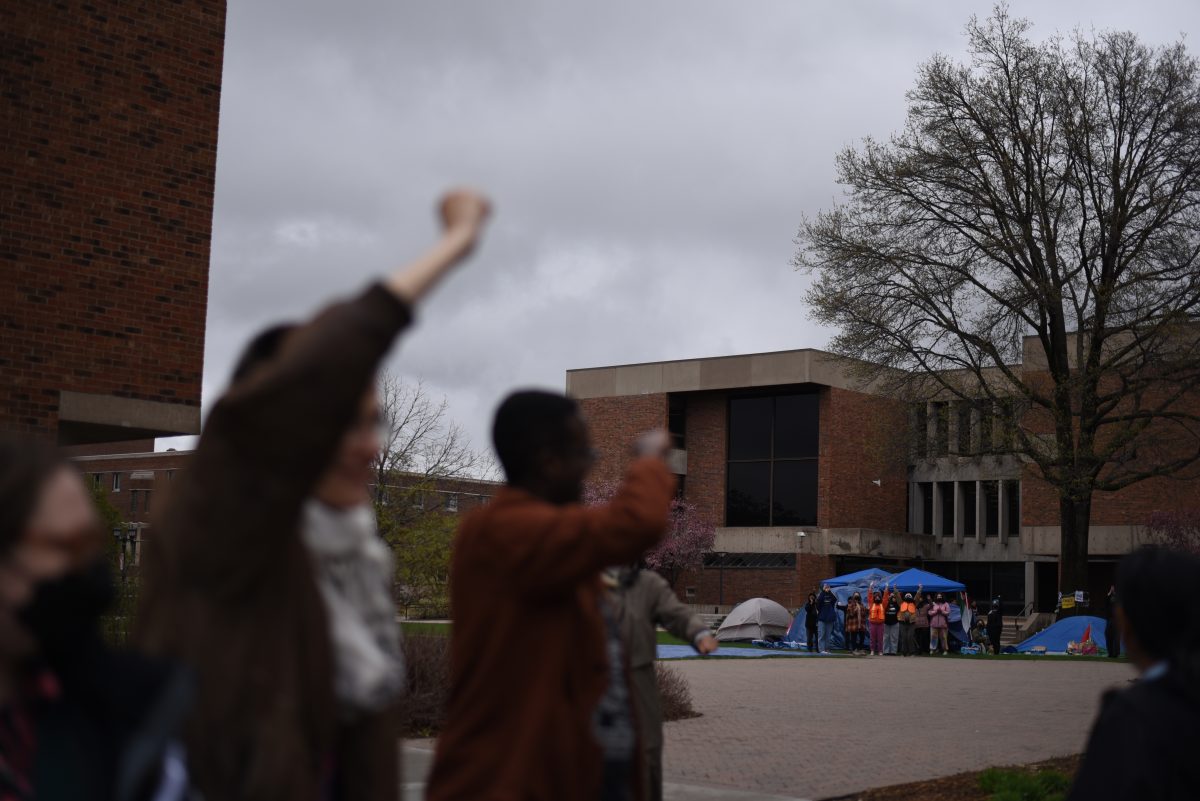Faced with a budget shortage, Hamline has made major cuts to its work study program. After discovering a multimillion-dollar deficit in the University’s 2024 budget, administrators presented a list of cost-cutting recommendations to the Board of Trustees, which included Hamline-funded work study. Although few students were on campus in June to feel an immediate impact from that decision, many student workers returned to campus this fall to find that their work study positions no longer exist.
While “work study” broadly refers to federal- or state-funded student work as a form of financial aid, Hamline has long provided university funds to employ student workers in the same roles regardless of their financial aid package. That program, generally referred to as “Hamline work study,” is what has been defunded, and students have noticed major changes to both who can work on campus and which jobs are available.
For students who lack transportation or are unavailable for standard work hours due to their status as a full- or part-time college student, on-campus jobs might be their only viable source of income. Still, for many student workers, the work has more than a dollar value.
“Working for Central Service Desk was huge to build my knowledge of campus and build community,” affected student worker Jason Elyea-Wheeler said.
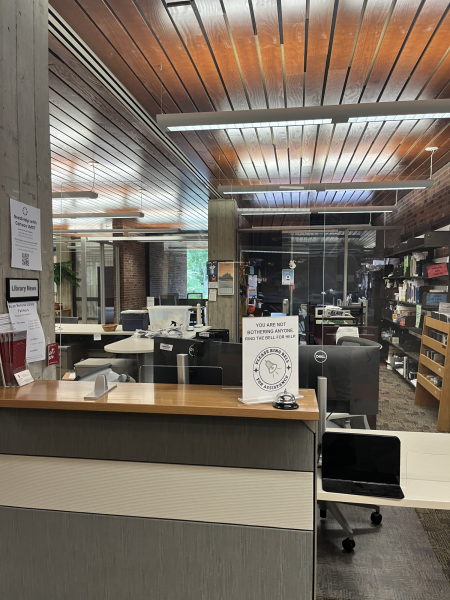
Departments have been using other methods in order to complete work each week, and many student worker tasks are now completed by university staff. PiperXpress does not have enough employees to keep their front desk staffed during hours of operation and is often unable to deliver on campus. Similarly, Hamline’s Theatre Box Office now has half the number of employees it had in years past.
“It’s difficult to complete the sheer amount of work we need to get done in the amount of hours we now have,” Box Office Manager Rosie Knowlton said.
Another affected Central Service Desk (CSD) worker, Korai Kayim-Yanko, shared his frustration with the changes.
“It felt like the budget cuts were justified with the idea that students were doing nothing,” Kayim-Yanko said. “That’s part of a lot of work study jobs. There is downtime. You do get paid to do homework sometimes. Now all of that downtime has been stripped away. … It feels unfair. It feels like they don’t understand why students work on campus.”
Several student workers shared their belief that losing access to work study came in response to their individual on-the-job performance. Interim Provost Andy Rundquist, one of the administrators who identified Hamline work study as a candidate for budget cuts, clarified that administrators did make distinctions between roles with more idle time such as “front desk coverage” and roles with more active responsibilities but did not make decisions based on individuals.
“[We had to] talk to lots of people, figure out what’s possible, try to understand the student impact, try to understand the dominoes it knocks over and then make the call,” Rundquist said. “Of course you can just say ‘Everybody’s cut,’ but we had lots and lots and lots of conversations about which jobs. Which jobs are critical to life on campus, which jobs are critical for students to be able to get an awesome experience, which jobs require some training … and which jobs could be funded in other ways?”
Students were given little explanation for the sudden loss of on-campus jobs. Some who could return to their past jobs found that they were scheduled for one-hour shifts instead of the four- to six-hour shifts they had before. Before press time, the university had not publicly acknowledged the budget shortage or the changes to Hamline work study.
Rundquist and Vice President for Finance and Administration Brent Gustafson both emphasized the time needed to prioritize work study positions when asked about the University’s lack of communication.
“The only decision we could have made in time to really make the announcement—that the students are now frustrated we didn’t make—was an even cut across everybody,” Rundquist said. “I’m kind of glad we didn’t go there. There were some areas that really shouldn’t have had that.”
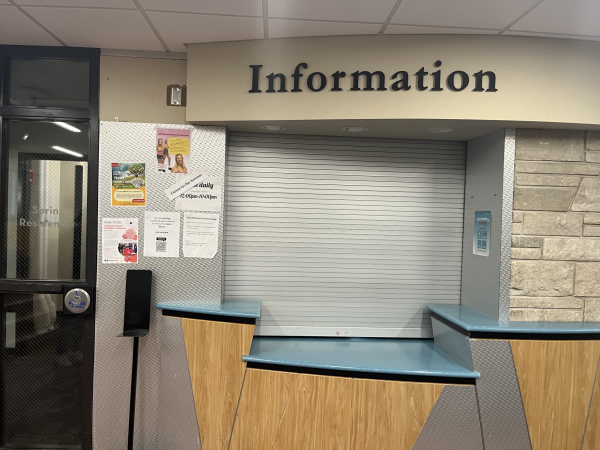
Although both administrators felt that the timing did not allow for clearer communication with students, Gustafson also explained that a projected budget deficit is a standard occurrence in many organizations which is often foreseeable.
“The University had anticipated much of the imbalance, particularly related to the expiration of federal COVID funds,” Gustafson said. “Beyond that, every budget forecast brings new information to bear, and more recent student data informed the revenue estimates at that time.”
While maintaining their key role in resolving technological issues around campus, the CSD is reeling to address the same needs with fewer staff.
“The CSD phones are still ringing,” Kayim-Yanko said. Outside an emergency, they can’t answer.

